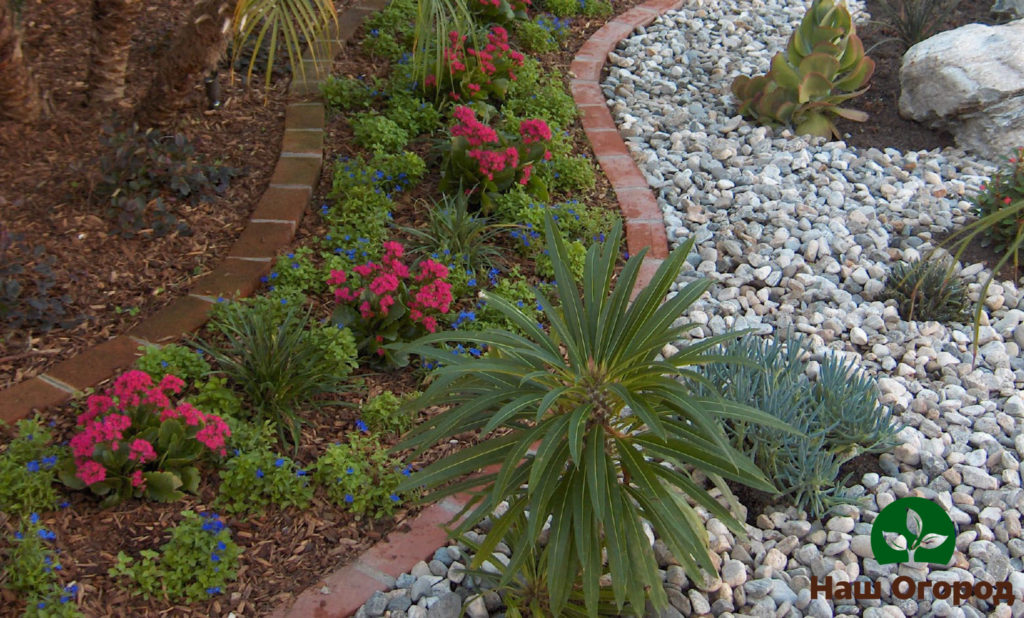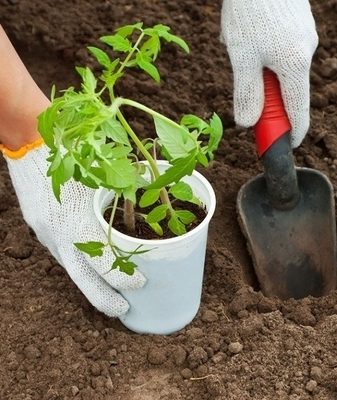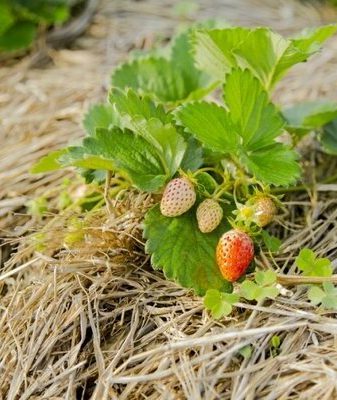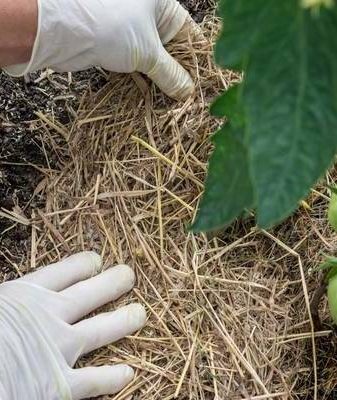Mulching the garden
Mulching the garden
The mulching itself is a three-layer material that is placed on the ground or potting mix. Mulch acts as a natural blanket that protects the soil. This layer can be composed of a variety of materials, from bark and straw to pebbles and gravel.
A thick layer of mulch protects the soil and plant roots from temperature fluctuations, which gives them fresh air and helps to retain moisture in the soil and therefore reduces the need for watering, which is especially important for plants with shallow roots.
A thick layer of mulch inhibits weed growth. After mulching trees and shrubs, weeds often do not receive enough light to ripen. If they form seeds, it is more difficult for the shoots to pass through the thick layer of mulch. The result is weak and emaciated plants that are easy to weed. If you use organic material like alfalfa, it will decompose, fertilizing the soil. This, in turn, creates ideal conditions for beneficial soil organisms such as microbes, fungi and earthworms.
Mulch types
There are two types of mulch. Organic mulch, such as wood, bark, straw, peas, alfalfa, decomposes, adding organic and nutrients to the soil. Inorganic mulch, like gravel and pebbles, does not decompose, does not provide the soil with additional nutrients, and does not affect the soil structure and its ability to retain moisture. It should be noted that undecomposed bark fragments set off a chain reaction that stimulates the growth of soil bacteria and fungi that use nitrogen from the mulch. The decrease in nitrogen levels can be controlled. Add nitrogenous fertilizers to the soil before mulching.
Mulching application

Cover the garden only when the ground is damp. Get rid of weeds before mulching. Leave a mulch-free space around tree trunks and plant stems, otherwise the roots may rot due to high humidity.
The thickness of the mulching layer of trees and shrubs, depending on the type, usually ranges from two to six centimeters. Small mulch decomposes faster than large mulch and should be added more often, once or twice a year.
It is best not to use compost as mulch.




